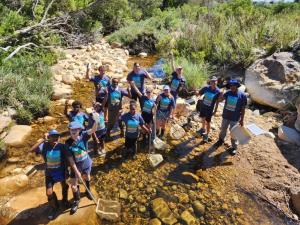Faculty of Science
Building South Africa’s scientific, intellectual, and technological capabilities
The Faculty of Science is a leading hub for education and research in the physical, biological and mathematical sciences. With eight departments, multiple research centres, institutes and research chairs, we provide an intellectually stimulating environment where students engage with complex scientific challenges and are challenged to find sustainable solutions – from undergraduate to postgraduate level.
Our students learn to think critically when tackling real-world problems, based on a solid knowledge foundation in the natural sciences. With state-of-the art analytical equipment and laboratory infrastructure at hand, we provide ample opportunities for hands-on training and developing your analytical skills to better address these challenges.
With a strong ethos of research excellence, our researchers make an important contribution to society. From the fundamental to applied sciences, they address the many challenges facing South Africa and the world. We often work in collaboration with research councils, government institutions and industry partners to find innovative solutions to real-world problems, while nurturing and promoting a culture of innovation and entrepreneurship.
Due to the importance of the natural sciences in interdisciplinary research, we play a key role in initiatives such as the Stellenbosch University Water Institute, the Centre for Bioinformatics and Computational Biology, the Institute for Biomedical Engineering, the African Microbiome Project, the School for Data Science and Computational Thinking, and the School for Climate Studies.
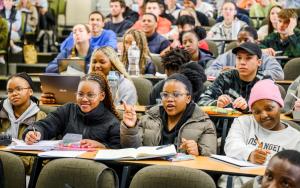
Our distinguishing features
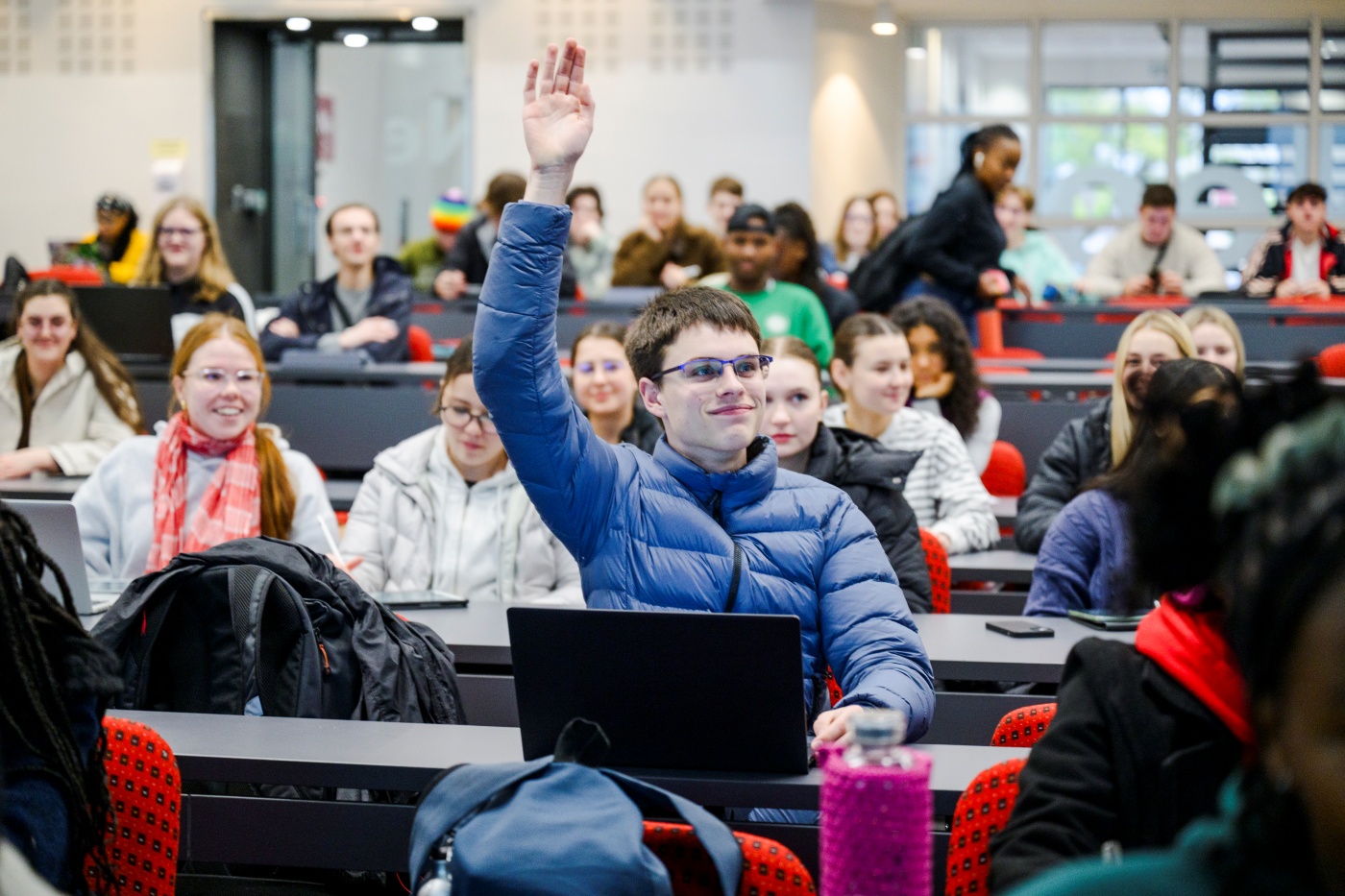
Undergraduate programmes
The Faculty of Science offers diverse undergraduate programmes in the biological, physical and mathematical sciences. Our flexible and agile degree programmes prepare students for the modern world of work and equip them with the necessary skills set for the 21st century. We provide a unique, personalised student experience that serves as a catalyst for transformative change.
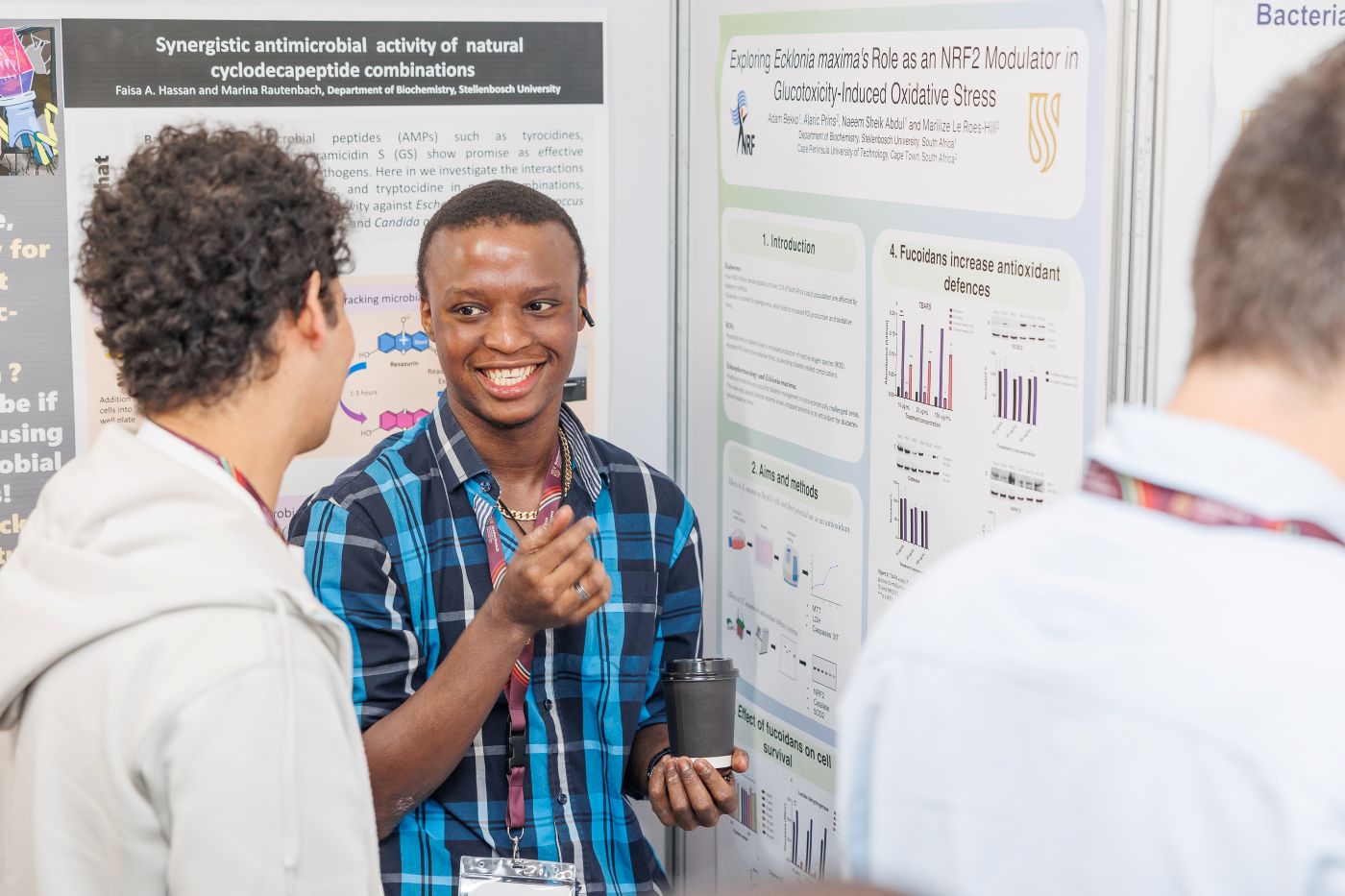
Postgraduate programmes
In our postgraduate programmes, we strive for a healthy balance between basic and applied research, taking into consideration the needs of the South African community at large. A multidisciplinary approach on national and international levels, and across subject, faculty and other boundaries, is advocated. Research is supported by various centres, analytical facilities and institutes under the auspices of our eight academic departments.
Top stories
Discover stories of our pursuit of impactful solutions, building learning communities that leverage the latest technologies, and our exceptional people.
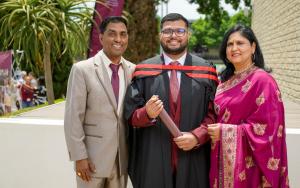
Media release
Deaf student graduates with BSc Honours degree
Deaf with a capital D and proud of it!
It is with this attitude that Trevolin Pillay will walk over the stage this week to be capped with a BSc Honours degree in...

Awards and milestones
Brilliant mathematics achiever honoured with SU’s prestigious Chancellor’s Medal
Just weeks after being announced a recipient of the coveted Rhodes Scholarship, Kerry Porrill was awarded Stellenbosch University’s top honour – the Chancellor...

Institutional news
Their footprints lie deep in Faculty of Science’s history
Mariétta van den Worm, Director: Faculty Management, and Suzette Els, Personal Assistant to the Dean, have been with the Faculty of Science and Stellenbosch...
Upcoming Events
Attend our events for the opportunity to discover, grow, learn and engage with our community.
Contact us FACULTY OF SCIENCE
Physical address
Second Floor
AI Perold Building
Stellenbosch

